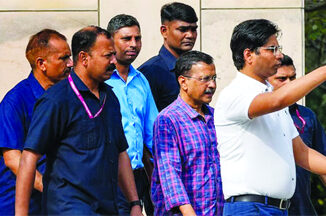
It was often said of AB Vajpayee that he was the right man in the wrong party. As he steps down after a mammoth 10 years in office, people might perhaps say that Manmohan Singh was the right man in the right party but at the wrong time.
Many of his admirers have gone into overdrive to rattle off facts and figures of growth in the Manmohan era. And indeed, they were impressive in UPA 1. But politics is all about perception and this did not serve the PM well in his second stint in office. But that should not surprise us so much since he never was a professional politician. He was the quiet academic-minded economist thrust into a position where all aroundMachiavellian intrigues were being played out, most of all within his own party.
That he had to co-exist with a powerful Congress president did not help burnish his image. Rather he was seen as the secondary partner in this relationship. And clearly, the liberal economist in him must have winced at the social sector decisions taken by Sonia Gandhi’s powerful National Advisory Council with no thought as to where the funds would come from.
Yet, his assertion that history will be kinder to him than the media and his opponents rings true. Had it not been for him, India‘s nuclear apartheid would still have continued and the government held hostage by an antediluvian Left. While his dream of peace with Pakistan did not materialize, he cannot be faulted for trying to remove this perennial thorn in India’s side.
In a coalition era, his gentle inclusive personality saved the day on many occasions. But the party with its penchant to find scapegoats for its failings saw the perfect candidate in Mr. Singh. His fault was that he did not use his authority to stop such efforts and their architects in their tracks. Many wonder why he was not more combative. But, the Congress has never been a place where anyone takes on the high command and carries the day.
Despite this,Mr. Singh did so in the case of the nuclear deal. His greatest drawback lay in the fact that he was no communicator. He was awkward in public, not an impressive speaker and tended to keep his thoughts to himself. In real life too, we understand, he is a man of few words. But to his credit, he did preside over the transition of India from being the poor man in Asia to an emerging economic power.
Nothing can take that away from him. He may have had many failings as an administrator, but he made up for that with a rare civility and personal integrity. History certainly will be kinder to him than his own time has been.





Be the first to comment